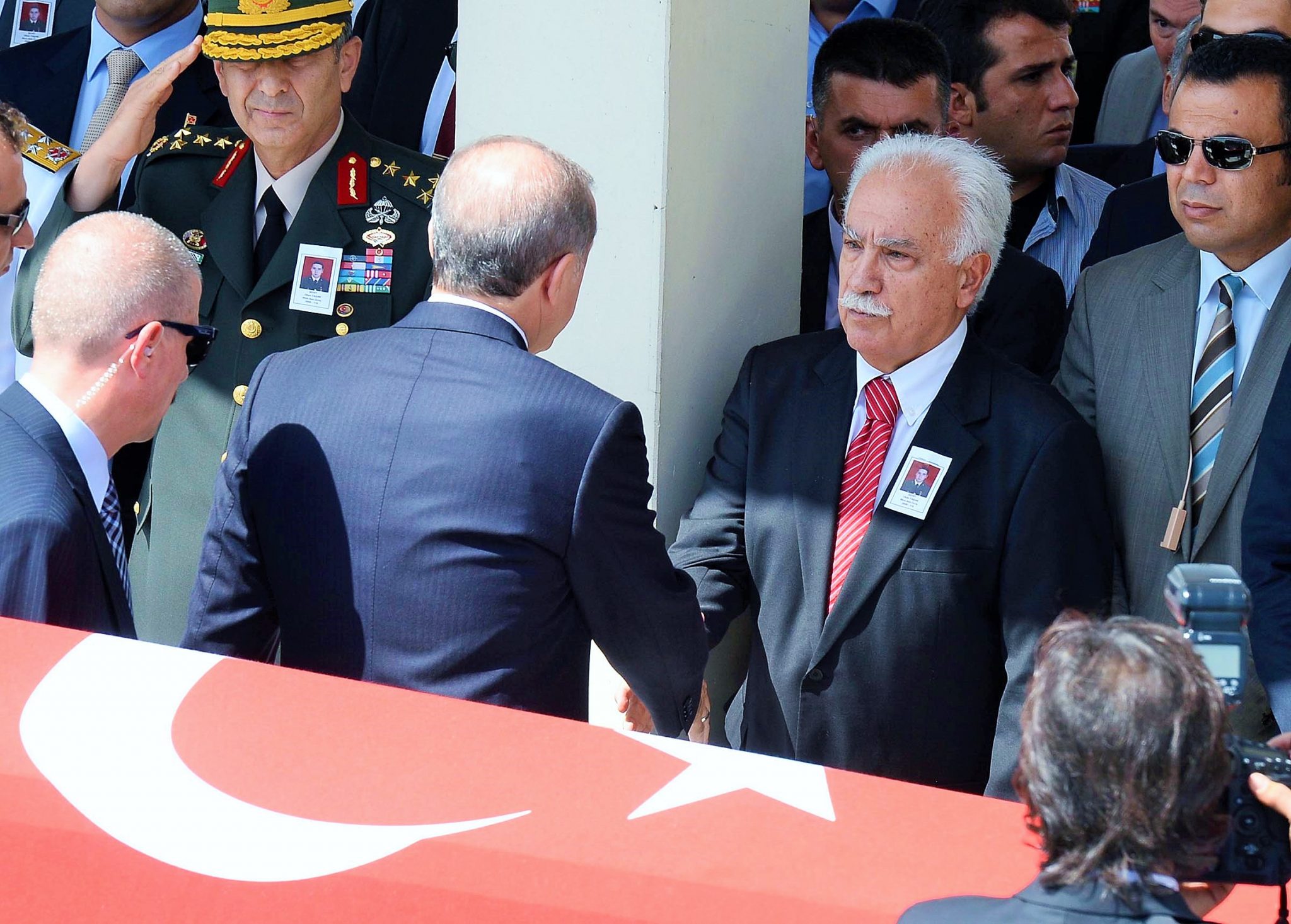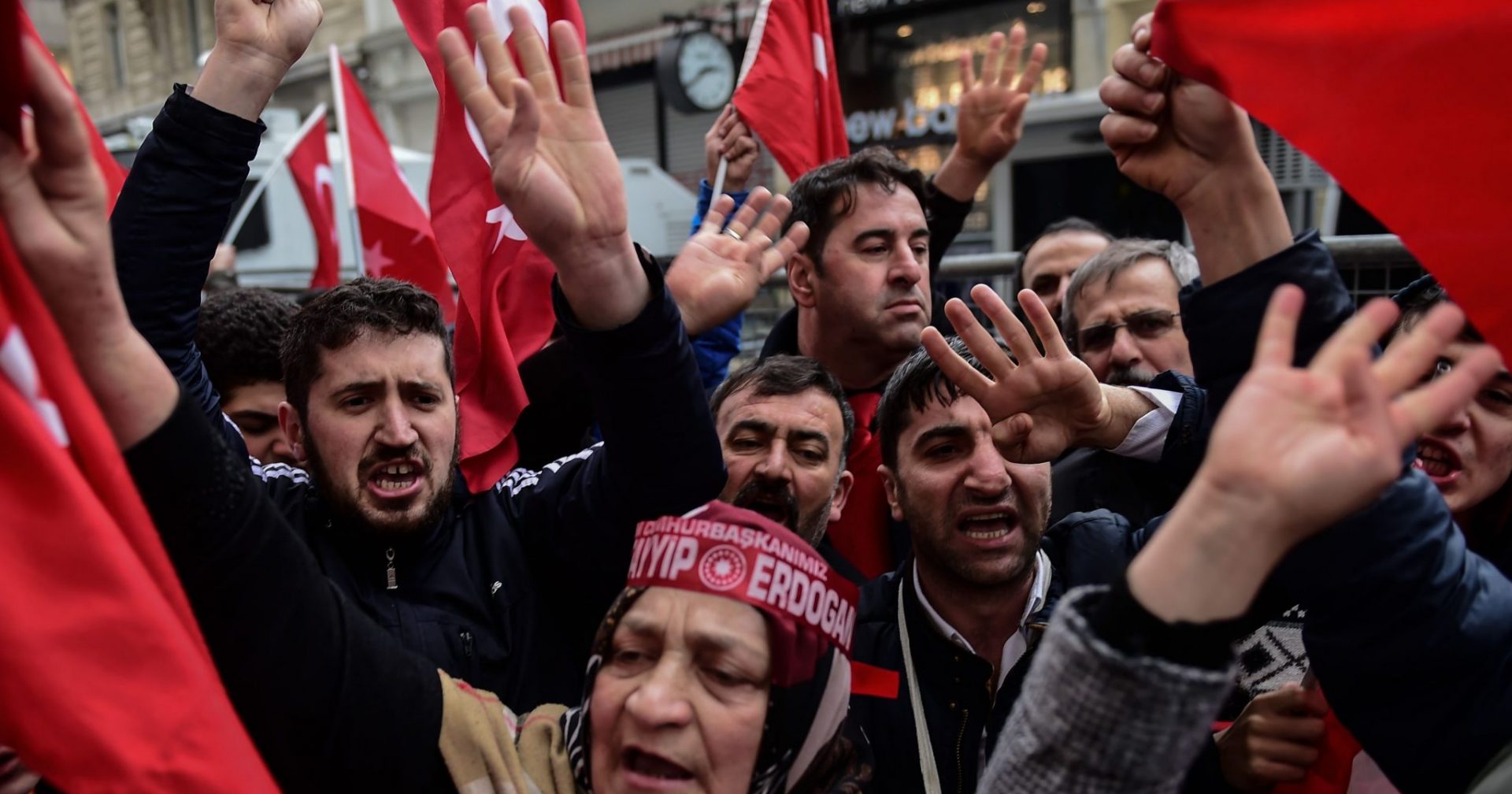
No doubt that there is a new and strange alliance in Turkey’s current political landscape. However, to understand the full awkwardness of this co-operation, one needs to take a few steps back in time to the year 2007, when the two protagonists of this story were the nemesis of each other: Doğu Perinçek and incumbent President of Turkey, Recep Tayyip Erdoğan.
In fact, the story of President Erdoğan is well-known. He was the mayor of Istanbul, Turkey’s largest city, between 1994 and 1998, while succeeding to win the office as Prime Minister in 2003 until 2014. In the first direct election in Turkish history, Erdoğan managed to win the presidential elections in 2014. Lately in 2017, his victory in a neck-to-neck constitutional referendum managed to grant him broadened powers to govern Turkey.
However, the other protagonist is not renowned outside the borders of Turkey. While always being marginal, Doğu Perinçek has always been very important for Turkish politics and for all those who want to understand more about how you do not need to be in the first row to enjoy the power. In the ‘70s and ‘80s, Perinçek was mainly known for his activism on the left spectrum of politics, explicitly supporting the Kurdistan Workers’ Party (PKK) and regularly meeting with its leader, Abdullah Öcalan. That being said, Perincek and the political parties he established has been interestingly shifting slowly but surely over the past two decades toward Kemalism – Turkey’s official ideology; stressing its nationalist, secularist and “anti-imperialist” ideology.
In foreign policy, he has been since then warmly supporting anti-Americanism, expressing Eurosceptic and pro-Russian positions. In 2007, he was even sentenced by a Swiss court for “genocide denial”, calling the Armenian Genocide an “imperialist lie”. Yet, in 2015 the European Court of Human Rights delivered a decision defending his freedom of speech.
Not over yet, in 2007 he was arrested and jailed during the Ergenekon case, and was accused, among others, of plotting to overthrow the Turkish government through a coup. He was then set free in March 2014, but shortly after the detainment, the state of play in Turkish political waltz had radically changed: the long-time AKP-Gülen movement alliance broke up, and exploded in an all-out political war. That was the moment when Perinçek’s influence started to surge, and when he presumably forged a new alliance with his former arch enemy – President Erdoğan.
Make no mistake, Perinçek and his entourage never changed their opinion; the one who swiftly shifted their judgement was Erdoğan and his AK Party. As the saying goes, the enemy of my enemy is my friend, hence the odd alliance between the former convicted and the President. Both personalities, in fact, shared an arch-nemesis, that is Fethullah Gülen – a Turkish preacher who is on self-exile in the US.
Following the formation of the alliance with an Islamist who has no political medulla, Perinçek’s influence in the Turkish state started to rise irrepressibly, even though his political success still stayed very low. Consequently, his political impact affects the major sectors in Turkey from bureaucracy to the judicial system; from the state administration to military and media. One can wonder how he acquired such massive power even if he is neither part of the government. The answer is that both Erdoğan and Perinçek need each other: the former to keep himself in power and continue the purge of Gülenist from the State and all its branches; the latter to pursue his ill-advised vision for Turkey’s internal politics and foreign policy moves even if not elected.
Following the coup attempt in July 2016, and the consequent purges within the state apparatus (Armed Forces, bureaucracy, security intelligence, etc) of Gülenist, there were several posts which were vacant, and needed therefore to be filled. The Armed Forces, specifically the National Intelligence Service (MIT), the Gendarmerie Command, and the Ministry of Defense were amongst those who were the most influenced by Perinçek. In fact, Perincek managed to obtain major roles for his fellows in the State structure over the past several decades as part of his ambitious and longstanding bourn. When raking up the past one can discover that the last three retired heads of Turkish military intelligence have been working in Perinçek’s party.
The military was not, anyhow, the only environment highly hit by purges: among the others, there was and is particularly interest for the judiciary as well. Through different investments in judicial bodies, many Perinçek-affiliated judges were elected in several important managerial posts of the judiciary. It seems that his long arm has even reached the European Court of Human Rights, and therefore influenced some decisions of the international body.
Perinçek’s influence, however, does not stop here. Even some key figures of the AK Party that President Erdoğan leads were very close to Perinçek, mainly the groups who were the harshest critics that Erdoğan had when he was trying to implement EU accession process and wanted to tighten the bond with the West. One of those is indeed Yiğit Bulut – one of Erdogan’s chief advisors, who never hides his personal sympathies for Russia and China.
The fact remains that Perinçek might also have received help from outside Turkey, too. Numerous Russian officials have met with Perinçek and his entourage several times, strengthening what they call “Eurasianism” – the direction where Turkey is wanted to move toward whilst walking off the West. Remember the “jet crisis” in 2015, when a Turkish jet downed a Russian plane, which flew over Turkish airspace? Well, Russian élites were convinced with the support of Perincek that the pilot who downed the jet was a follower of Fethullah Gülen. As a matter of fact, Perinçek was also the one who mediated between Russia and Turkey when the Russian ambassador Andrey Karlov was shot in Ankara during an art exhibition in December 2016.
Surprisingly, Doğu Perinçek was also warmly welcomed in both Iran and Syria by officials and, in two visits, by former Iranian president Ahmadinejad and by Bashar Al Assad personally.
This is all to say that where this strange alliance will lead Turkey is uncharted waters: we need note, however, how quick was AK Party in changing its positions and quickly getting closer to Perinçek vision of the world and of the future of Turkey.



1 Comments
Aras Akdeniz
Although most of this writing is true, one thing is not. Perinçek did not support PKK or Öcalan at all. He did meet with Öcalan, indeed. But that wasnt for showing his support for Kurdish fighters or PKK. It was actually for requesting them to surrender. Which did not happen but led to Perinçek becoming number one target for PKK and “Apocular” (Öcalan’s supporters in Turkey).
Other than that, most of the things on this writing is true.
Much respect to Veneziani.
Comments are closed.